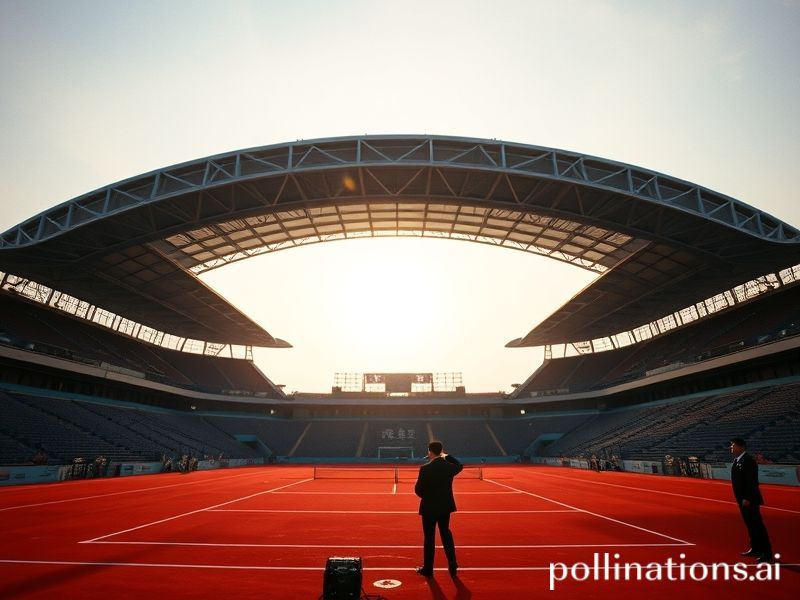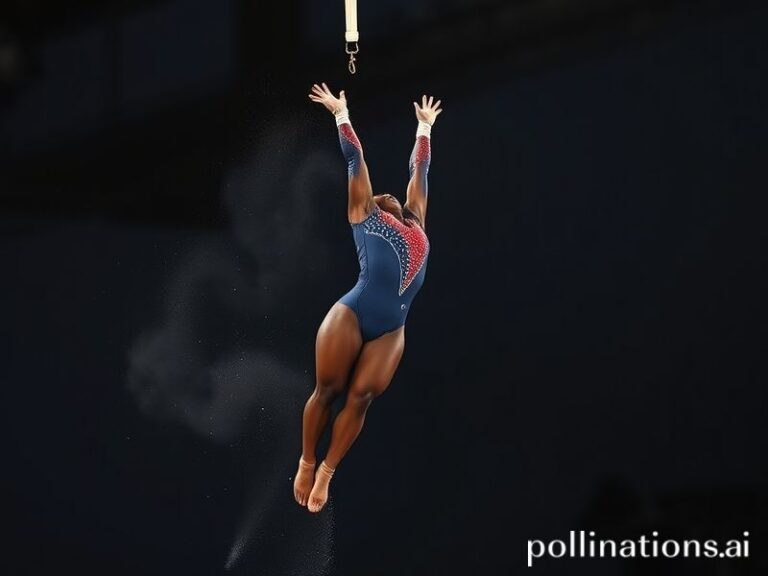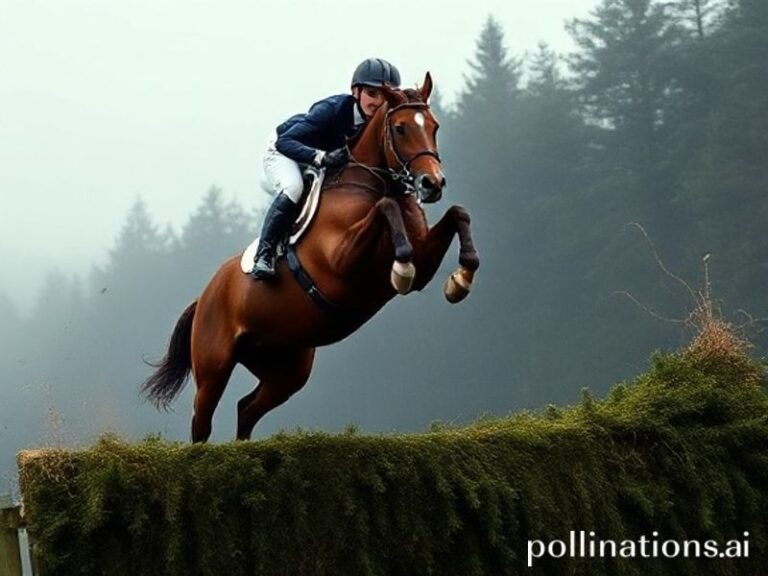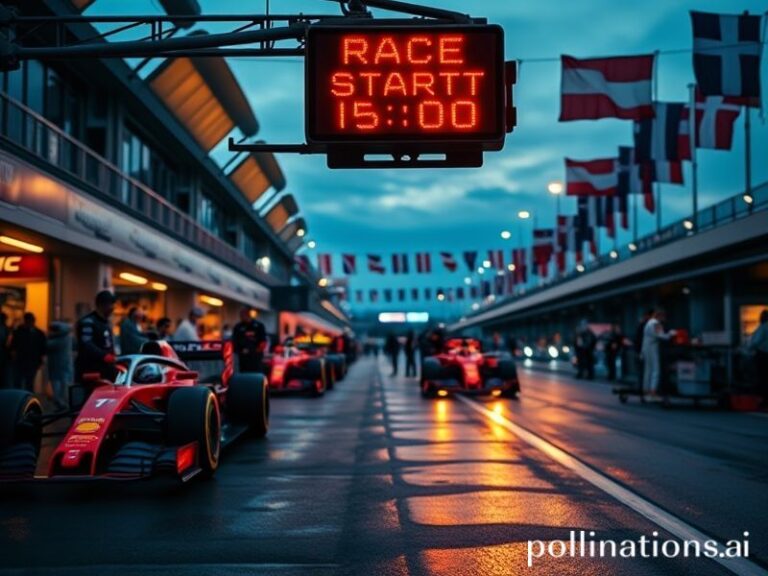China Open: Where Tennis Meets Tear-Gas Chic in the Heart of the Surveillance State
BEIJING—Every October, when the capital’s air achieves the texture of wet cement and the diplomatic corps swap pollution masks for designer respirators, the China Open swings into town like a billionaire’s house party that accidentally got televised. For two weeks the Olympic Tennis Center becomes a tiny, manicured island of fluorescent tennis balls in a sea of state surveillance, where the world’s best racket-swingers are paid princely sums to pretend the smog is merely “aggressive ambiance.”
Globally, the tournament is billed as the final jewel in the Asian Swing, a phrase that sounds like a rejected Bond film but is actually marketing code for “please ignore the geopolitics and focus on the backhands.” Still, the politics leak in like tear gas under a hotel door. The WTA and ATP have learned—sometimes the hard way—that every line call in Beijing is scrutinised twice: once by the chair umpire and once by whichever algorithm is feeling patriotic that afternoon. When a Chinese player takes the court, the crowd’s roar acquires the precision of a North Korean parade: thunderous, on cue and faintly terrifying to uninitiated foreigners.
Overseas broadcasters treat the event as a Rorschach test. Eurosport waxes lyrical about “the rising power of Chinese tennis diplomacy,” while American outlets cut to commercial breaks featuring luxury cars driven through Alpine passes that look suspiciously unlike Beijing traffic. Viewers in Mumbai or São Paulo simply marvel that anyone can sprint in air you could butter. Meanwhile, Chinese state television overlays every rally with graphics celebrating the “shared future of mankind,” a phrase that apparently includes hawk-eye challenges and overpriced Heineken.
The prize money—north of US $30 million—doesn’t just attract mercenaries; it quietly re-wires the sport’s gravitational centre. European clay-court purists grumble that October’s rankings now hinge on who can best metabolise coal-fired particulates. Agents in Monaco calculate appearance fees in respirator units. And somewhere in Florida, a junior coach tells wide-eyed prodigies that if they want to afford college—or at least a college-admissions scandal—they’d better learn to volley through lung butter.
Sponsors, ever allergic to irony, plaster the venue with slogans about “pure performance” while handing out branded face masks at the gate. Luxury brands that once courted Wimbledon’s strawberries-and-cream set now compete to dress ball kids like miniature oligarchs. One apparel giant this year unveiled jackets lined with “air-purifying fabric,” apparently unaware that the same technology could be shipped to Uyghur regions with a change of embroidery. Nobody blinks; the sportswashing cycle completes itself before the first serve.
Then there are the players themselves, our itinerant gladiators in logo-stained armour. Some arrive with entourages large enough to qualify for UN recognition. Others—ranked somewhere in the 90s and already budgeting next year’s Challenger circuit—look around the player restaurant and realise the buffet costs more per head than their last three paychecks combined. Everyone smiles for the promo shots, because the alternative is explaining to customs why their Instagram story featured a skyline that looked like a cigarette after a long night.
And yet, beneath the grimy spectacle, the China Open keeps serving up the same sly reminder: the world’s second-biggest economy isn’t content merely to host the circus; it wants to train the lions, design the cages and sell the tickets—preferably priced in yuan. Every topspin forehand lands like a gentle memo to the rest of us: power now travels with a tennis bag and a carbon-fiber racket. We can boo, cheer, or cough our way through it, but the scoreboard is increasingly bilingual.
When the last ball is struck, athletes will jet off to Vienna or Basel, lungs gratefully refilling with comparatively “clean” European diesel. Beijing’s skies will revert to their usual opaque grandeur, and the stadium’s lights will dim until next October. But the metrics have already been tallied: broadcast reach, social impressions, diplomatic back-pats, and, somewhere deep in a server farm, a little uptick in the index labelled “soft-power elasticity.” The game, like the smog, lingers long after everyone claims to have left the court.







